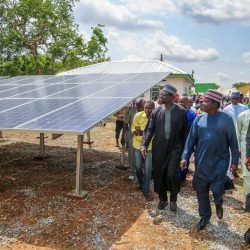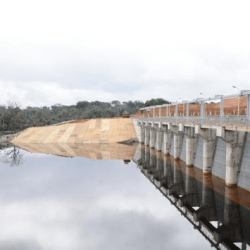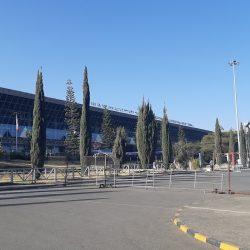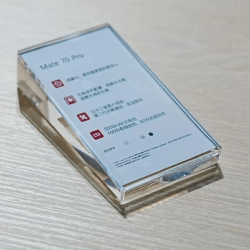Discover Hydro Power Genale Dawa-6, Ethiopia’s latest hydropower project with a 250MW capacity. Learn about its cost, design, and impact on Ethiopia’s energy sector.
Ethiopia is a leader in renewable energy, and the Hydro Power Genale Dawa-6 Project is set to enhance the country’s hydropower capacity. Located in the Somali Regional State, this massive project will feature a 60m high asphalt core rock-fill dam, a 16km waterway tunnel, and an underground powerhouse with two 125MW turbines.
With an estimated cost of $793 million, the project will operate under a Build-Operate-Transfer (BOT) model for 30 years, ensuring long-term energy security for Ethiopia. Currently, the feasibility study phase is in progress, with consultants being hired for assessment.
Overview of the Hydro Power Genale Dawa-6 Project
| Project Name | Hydro Power Genale Dawa-6 |
|---|---|
| Contracting Authority | Ethiopian Electric Power (EEP) |
| Capacity | 250MW (2×125MW turbines) |
| Dam Type | Asphalt core rock-fill dam |
| Dam Height | 60 meters |
| Reservoir Storage Volume | 183.6 million cubic meters (total), 39.6 million cubic meters (live storage) |
| Total Inundated Area | 8.15 km² |
| Gross Head | 234 meters |
| Rated Turbine Discharge | 120 m³/s |
| Waterway Tunnel Length | 16km |
| Total Investment | $793 million |
| Procurement Mode | Competitive Bidding |
| PPP Model | BOT (Build-Operate-Transfer) – DBFOM |
| Operational Duration | 30 years |
| Location | Somali Regional State, Ethiopia |
| Project Status | Hiring consultant for feasibility study |
Why the Hydro Power Genale Dawa-6 Project Matters
1. Strengthening Ethiopia’s Hydropower Capacity
With an installed capacity of 250MW, Genale Dawa-6 will significantly contribute to Ethiopia’s electricity generation and energy mix, reducing reliance on fossil fuels and imports.
2. Economic and Social Benefits
- Job Creation: Thousands of jobs will be generated during construction, operation, and maintenance.
- Enhanced Energy Security: More electricity will be available to households, businesses, and industries.
- Water Resource Management: The reservoir will regulate water flow for agriculture and drinking water supply.
3. Sustainable Development and Clean Energy
- Reduction in Carbon Emissions: Hydropower is a clean and renewable energy source.
- Efficient Land Use: The inundated area is only 8.15km², making it an environmentally friendly hydro project.
- Long-Term Economic Growth: Hydropower investment supports industrialization and rural electrification.
4. Public-Private Partnership for Efficient Execution
The BOT model ensures:
✅ Private sector financing and expertise
✅ Cost-effective and timely project execution
✅ Seamless transfer of ownership after 30 years
Current Status and Next Steps
The project is currently in the feasibility study phase, with consultants being hired. Once the study is completed, the project will move into the bidding and development phase.
FAQs About the Hydro Power Genale Dawa-6 Project
1. What is the total capacity of the Hydro Power Genale Dawa-6 Project?
The project will have an installed capacity of 250MW, utilizing two 125MW turbines.
2. What is the cost of the project?
The estimated investment for the project is $793 million.
3. What is the purpose of the reservoir?
The reservoir will store 183.6 million cubic meters of water, ensuring steady hydropower generation and water supply management.
4. What is the current status of the project?
The project is in the feasibility study phase, with consultants being hired.
5. How will the project benefit Ethiopia?
The project will:
✔ Increase hydropower generation capacity
✔ Provide jobs and economic opportunities
✔ Improve water resource management
✔ Reduce carbon emissions and dependence on fossil fuels

6. What is the operational period of the project?
The project will be operated under a Build-Operate-Transfer (BOT) model for 30 years before being handed over to the Ethiopian government.
The Hydro Power Genale Dawa-6 Project is a milestone in Ethiopia’s energy expansion strategy. With 250MW capacity, $793 million investment, and a robust PPP model, this project will enhance energy security, economic development, and environmental sustainability.












